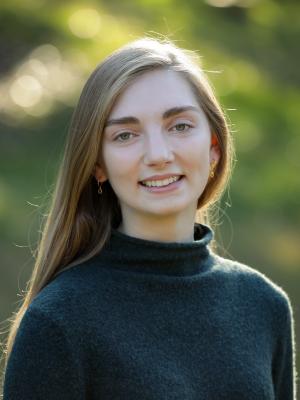
Protein biophysics, Self-assembly, Computational biology
B.S., Georgetown University, 2021
MPhil, University of Cambridge, 2022
As an undergraduate at Georgetown University, Lydia studied biochemistry with a minor in mathematics, but she spent most of her time focused on protein biophysics as a member of Dr. Rodrigo Maillard’s research group. She developed statistics- and simulation-based data analysis tools for the Maillard Lab to use on data from single molecule optical tweezers experiments probing protein allostery. A summer internship with Dr. Amelie Stein through the Rosetta Commons solidified her interest in computational biophysics, and she returned the next year to work with Dr. Stein and Dr. Kresten Lindorff-Larsen at the University of Copenhagen on structure-based prediction methods for mutational effects on protein stability.
After graduating from Georgetown, Lydia spent a year as a research master’s student in Dr. Tuomas Knowles’ group at Cambridge, where she used data-driven computational approaches to characterize and predict biomolecular phase separation processes. She is looking forward to building on this work during her PhD and combining experimental and data-driven work in the Knowles group with molecular simulations in Dr. Robert Best’s group at NIDDK. Lydia hopes that by working across the molecular and cellular scales to achieve quantitative understanding of biomolecular systems, especially protein-protein interactions, she can help improve our understanding of molecular mechanisms in health and disease.
Dr. Robert Best (NIDDK)
and Prof. Tuomas Knowles (Cambridge)


